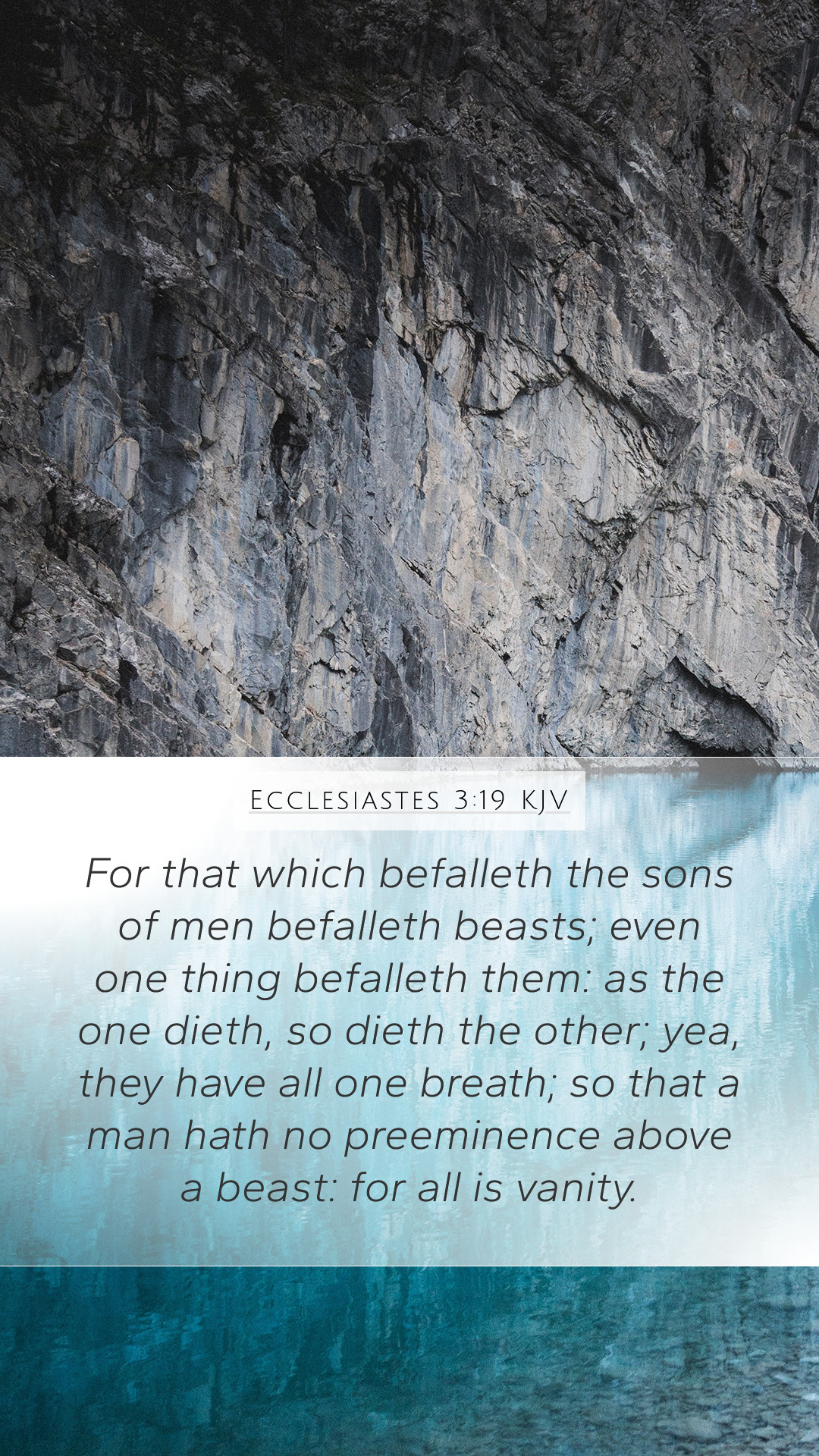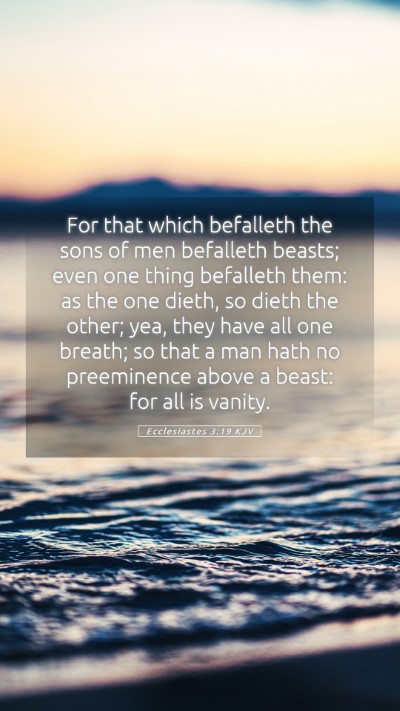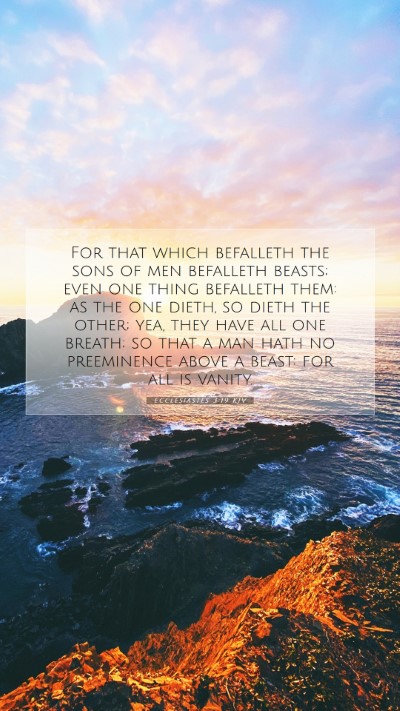Understanding Ecclesiastes 3:19
Ecclesiastes 3:19 states: "For what happens to the sons of men also happens to animals; one thing befalls them: As one dies, so dies the other. Surely, they all have one breath; man has no advantage over animals, for all is vanity."
Overview of the Verse
This verse falls within a section of Ecclesiastes that explores the nature of life, death, and the seemingly futile cycle of existence. The author, traditionally understood to be Solomon, delves into the common fate that both humans and animals share, highlighting the transient nature of life.
Bible Verse Meanings
- Equality of Death: The verse emphasizes that death is an inevitable part of life for both humans and animals, indicating a level of equality in mortality.
- The Nature of Breath: The comparison of breath signifies the life force that animates both man and beast, underscoring their shared essence.
- Vanity of Life: The phrase "for all is vanity" reflects on the futility and temporary nature of earthly existence, urging readers to consider the deeper meaning beyond mere survival.
Bible Verse Interpretations
Public domain commentaries provide various insights into this verse:
- Matthew Henry: He notes that while humans often consider themselves superior, ultimately, the fate of all living beings is the same; this calls for humility and a reconsideration of human pride.
- Albert Barnes: He expands on the concept of vanity, explaining that both humans and animals return to dust, suggesting that our lives should not be wasted on trivial pursuits but rather focused on spiritual matters.
- Adam Clarke: Clarke remarks on the observation that the same breath of life animates both, pointing to a divine purpose and the need to seek meaning beyond physical existence.
Scripture Analysis
This verse serves as a reminder of the existential questions that have plagued humanity throughout history. It asks us to reflect on:
- The fleeting nature of life.
- The shared experiences of all creatures.
- The importance of seeking meaningful existence rather than material gains.
Biblical Exegesis
When analyzing Ecclesiastes 3:19, it’s important to consider:
- The historical context in which this writing emerged, reflecting a time of inquiry and philosophical exploration.
- How the themes of this verse connect with other wisdom literature in the Bible, such as Proverbs and Job.
In-depth Bible Verse Analysis
Understanding this verse involves delving into:
- The implications of mortality on human behavior and ethics.
- The relevance of this passage to modern-day life, where the search for meaning persists.
Cross References
- Genesis 3:19: Reflects on man's return to dust.
- Psalm 49:12: Discusses man's perishability, similar to the fate of beasts.
- Isaiah 40:7: Emphasizes the temporary nature of human life akin to grass.
Conclusion
Ecclesiastes 3:19 serves as a profound reminder of the equality that exists between humans and animals in death, challenging us to reflect on our lives and what we value. By understanding this verse through various commentaries, we gain insights on humility, the shared experience of life, and the ultimate pursuit of deeper meaning beyond mere existence.
Application of the Verse
In applying Ecclesiastes 3:19 to daily life, individuals are encouraged to:
- Reflect on the transient nature of their pursuits.
- Seek a more meaningful existence through spiritual practices and relationships.
- Engage in discussions within Bible study groups that focus on the teachings of Ecclesiastes.


